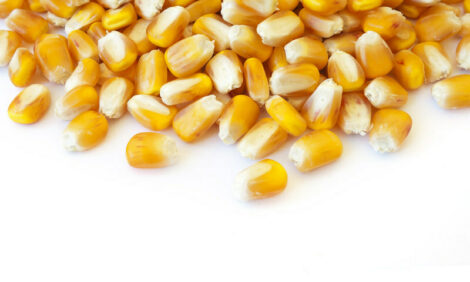



Alternative Protein Source for Nursery Pigs
Researchers at North Carolina State University have found fermented soybean meal to have great potential in weaner pig feeds.Formulation of diets for nursery pigs requires a trade-off between utilizing protein sources that are highly palatable and digestible and those that are low cost. While the major concern of the use of animal protein sources in nursery pig diets has been cost, recent concerns over animal health and food safety related to feeding animal products back to food animals have added greater complexity to this issue. These concerns have also spurred research towards improving the quality of plant protein sources for use in diets for newly weaned pigs.
Recent work in our Department by Drs Sung Woo Kim and Eric van Heugten along with their colleagues has examined a fermented soybean meal (FSBM) product for use in diets designed for newly weaned pigs. The FSBM tested was produced by Genebiotech Co. Ltd (Seoul, Korea) by fermenting soybean meal with a fungus (Aspergillus oryzae) that has been used for human food fermentations for centuries. In addition to partially digesting the proteins in the soybean meal, thereby improving their digestibility, the fermentation process also reduced the concentrations of several anti-nutritional compounds found in soybean meal (Table 1).
Drs Kim and van Heugten conducted four separate feeding trials to examine the potential for using FSBM instead of animal protein products such as dried skim milk and plasma protein. From the results of these studies, they concluded that the FSBM was superior to soybean meal for inclusion in weaning pig diets. They also demonstrated that this product has the potential to replace dried skim milk, particularly if lactose and synthetic amino acids are utilised. Overall, this work provides valuable information regarding the suitability of FSBM for use in newly weaned pig diets.
| Table 1. Composition of soybean meal before and after fermentation with Aspergillus oryzae | ||
|---|---|---|
| Item | Soybean meal | Fermented soybean meal |
| DM | 89.6 ± 2.4 | 91.2 ± 2.1 |
| Crude protein, DM basis | 50.3 ± 1.7 a | 55.3 ± 1.9 b |
| Lysine, DM basis | 3.35 ± 0.17 | 3.27 ± 0.20 |
| Threonine, DM basis | 2.02 ± 0.18 | 2.24 ± 0.19 |
| Tryptophan, DM basis | 0.88 ± 0.05 | 0.72 ± 0.06 |
| Methionine, DM basis | 0.77 ± 0.05 | 0.82 ± 0.07 |
| Glycinin, CP basis | 8.8 ± 0.8 a | 5.3 ± 0.6 b |
| β-Conglycinin, CP basis | 23.9 ± 1.8 a | 14.4 ± 1.2 b |
| Phytic acid2, DM basis | 2.77 ± 0.09 a | 1.79 ± 0.01 b |
| a,b Least squares within lacking a common letter differ (p<0.05) 1 Values are means of five samples ± SE 2 Values include inositol hexakisphosphate, inositol tetrakisphosphate and inositol trikisphosphate |
||
This research is reported in its entirety as Fermented soybean meal as a vegetable protein source for nursery pigs: I. Effects on growth performance of nursery pigs in the Journal of Animal Science, 2010, 88:214-224.
November 2010








